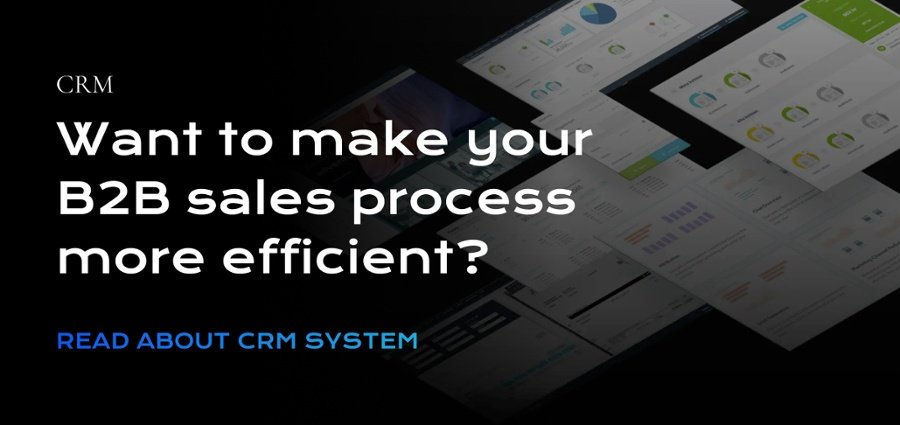The term ‘customer relationship management’ or, more simply, ‘CRM’ is on everyone's lips. And for good reason; the issue of recording, storing and processing customer data and related information affects virtually every company across all industries. In recent years, the main question about CRM has changed from being about whether it’s even necessary in the first place to which software should be used to carry out such an integral function. This is where CRM systems come into play.
Let’s take a look at the importance and orientation of good CRM systems. Our main focus will be on the advantages, components and tasks of CRM systems.
What is a CRM system?
A CRM system is a method of executing CRM within your business and usually comes in the form of software. This software provides your business with applications and functions that enable you to organise your customer relationships. That means that all of your customer data is stored in a database that allows you to better know your customers and therefore better manage them.
In practice, all CRM systems put all of your customer data in one place that you can access at any time. If you are not yet using a dedicated CRM system, it’s quite likely that you have at least put a similar concept into effect before. Whether via a simple Excel spreadsheet or with the help of a folder structure, every company needs to be able to find customer data quickly and reliably. A CRM system is simply the professional implementation of this idea in dedicated software form.
Why do I need a CRM system?
Your individual customer service is only as good as the efficiency of your business processes. A lack of personalisation and standardisation often leads to low customer satisfaction. But how do you reconcile business growth and individual customer care? The answer is automation, and CRM systems can do that for you.
As your company grows, so will your need for security. A CRM system not only facilitates your customer data management but also keeps it secure. If your company is just starting out, you probably haven’t yet questioned the management of your data without external software, or you’re only just starting to do so now. Don’t forget, however, that the more data you collect, the more complex your database becomes. The more individual variables you want to store and track, the greater your need for a dedicated software solution will be.
Here are the basic functions of a CRM system:
- Helps to identify customers, manage marketing campaigns, and simplify and organise lead generation
- Improves collaboration between different employees and departments in your company, especially between marketing and sales
- Maximises customer satisfaction by simplifying and speeding up business processes
- Simplifies and improves the work of your employees
The components of a CRM system
In terms of its basic function, a CRM system represents the possibility of centrally managing your customer data. Each individual CRM system layers on top of this more specific and specialist interplays; the operational activities of your company, the communication with your customers, the analysis of your customer interactions as well as the collaboration between your employees and departments.
So, what are the different components of a CRM system?
The operational component of your CRM system: in order to optimally use information from your customers for your operational business, you need to be able to manage it according to your business activity. This includes data on your offers, orders and deals, which you need to link to the respective customers. Only with a good CRM can this be optimally implemented.
The communicative component of your CRM system: in order to be able to ensure fluent and high-quality communication with your customers, you must have quick and easy access to their data, preferably automated. This is one of the core competencies of a good CRM system. It provides you with the relevant data with just a few clicks or allows automated access via an interface. This not only facilitates your communication - it inspires it.
The analytical component of your CRM system: in order for you to be able to draw the correct conclusions from your customer data, you must have analytical methods at your disposal that you can operate with the data in your database. This is where a good CRM system can truly help you. It allows you to prepare your data in such a way that you can draw important insights from it.
The collaborative component of your CRM system: another central pillar of CRM is its support for collaborative working. Your employees and departments influence each other through their activities, and so they need access to the same data sets, both interdependently and independently. Especially when aligning marketing and sales departments, which is an important prerequisite for optimal marketing, both must have access to the same information at all times. This is only possible when implementing an underlying system that enables and actively supports this joint and collaborative work.
Read more about CRM in our guide: 
Real Growth. Real Impact.
Breeze: Everything you need to know about HubSpot's powerful AI
HubSpot vs. Salesforce: Which CRM platform is better?
Getting to know HubSpot Commerce Hub [VIDEO Q&A]
INBOUND 23 Round-up Blog: Key learnings and more
Consider this when integrating your CRM system with HubSpot
HubSpot CRM makes saleswork more efficient
5 Tips for Writing the Best Pitch Email You Ever Sent
See why enterprises chooseAvidly
Let’s build your HubSpot success story
Compelling final call to action - with accompanying link to Contact page



![Getting to know HubSpot Commerce Hub [VIDEO Q&A]](https://www.avidlyagency.com/hs-fs/hubfs/.Avidly%20HubSpot%20BU%20Assets%20and%20Files/HSBU%20Marketing%20Folder/Global%20or%20EN%20Campaign%20Assets/HSBU%20Learn%20About%20Commerce%20Hub%20Blog%20Post%20Image.png?width=400&height=225&name=HSBU%20Learn%20About%20Commerce%20Hub%20Blog%20Post%20Image.png)




